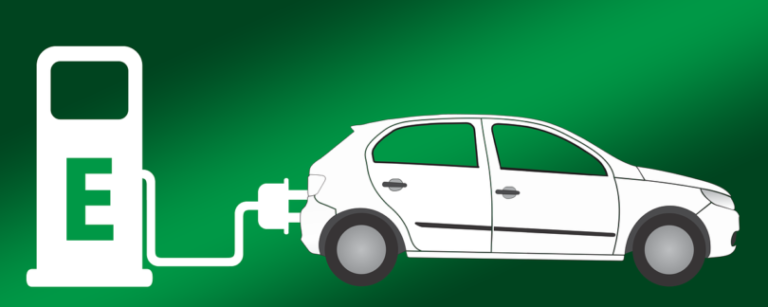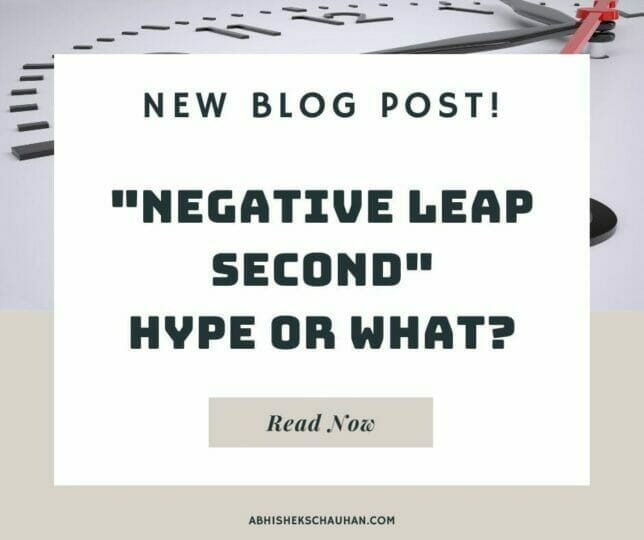Why Is Hope A Harmful Emotion
Hope is a positive emotion that often leads to optimism and satisfaction. But, as we’ll see in this blog, hope can also have harmful effects on our psyche. So be careful what kind of hope you install in your heart – it might not be so good for you after all! This article will explore the definition of hope, its harmful effects, and how to cope with them. We’ll also discuss the difference between hope and optimism and outline the dangers of expecting too much from life. Finally, we’ll give you some tips on how to stay positive despite negative circumstances. Stay tuned!
Definition of hope
Hope is a powerful thing, but sometimes it can be harmful. Hope can lead to unrealistic expectations and disappointment, leading to depression or other mental health disorders. People who are constantly hope-ridden often become passive and unproductive when faced with tough challenges. It’s important to be realistic about our goals and expectations and to maintain a healthy level of hope to live a fulfilling life.
Harmful effects of hope
Hope is a powerful emotion that can be both beautiful and life-affirming. However, too much hope can have harmful consequences. It can lead people into unhealthy situations, like addiction or depression. Hope is a deceptive emotion that often negatively affects those who adopt it excessively. When hope is absent, people may find it harder to cope with difficult life events. So, be mindful of how you’re using hope and keep it in check – it can be a powerful tool, but only when used correctly.

Hope can cause us to neglect reality.
Although hope can be a powerful emotion, it’s important to use it wisely. When we hope for something, we put unnecessary pressure on ourselves, and our expectations become too high. This often leads to disappointment when things don’t go as planned – or worse yet, if the goal is actually impossible to achieve. In addition, hope can distort our view of the world around us by making us focus on what we want instead of considering the potential risks involved in any situation. As a result, we disregard potential obstacles and dangers that might stand in our way. And lastly, because hope usually comes with positive expectations (eagerness), anger and frustration are bound to follow soon after disappointment sets in! Therefore, hope should not cause us undue stress or distress; instead, it should motivate us towards action towards achieving goals – even if they seem daunting at first glance.
Hope can lead to overconfidence
Hope can be a powerful tool but has a few downsides. When hope is excessively reinforced and taken as truth, it can lead to overconfidence and arrogance. It’s easy to get caught up in the belief that everything will turn out okay – which might cloud your judgement when things don’t go according to plan. Those who are overly optimistic are more likely to make poor decisions because they’re not taking into account potential risks or setbacks. They tend to view every situation through rose-coloured glasses, never seeing the downside of their choices until it’s too late. Hope by itself isn’t bad; in fact, it can often boost morale and motivation during difficult times. However, suppose expectations are constantly raised without any basis in reality (i.e., being told that miracles will happen). In that case, problems may arise down the line – most notably false self-esteem and unrealistic expectations about life outcomes.<
The dangers of expecting too much from life
Hope is a powerful emotion that can be both positive and harmful. When hope is replaced with cautious optimism, it leads to a more positive outlook on life. This leads to a reduced sense of stress and anxiety and a more positive relationship with life. However, it’s important to be aware of the dangers of expecting too much from life. When hope becomes delusion, it can be very harmful in the long run. These dangers include feeling overwhelmed, discouraged and frustrated, as well as an increased sense of anxiety and stress. Remember, hope should only be used when there is evidence that what we’re hoping for will happen – otherwise, it can turn into delusion and be very harmful. So, keep your expectations reasonable, and you’ll be on your way to a more positive life!
How to cope with the harmful effects of hope?
Hope can be a powerful emotion, but it can also be harmful. It can lead to unrealistic expectations and a false sense of security, which can be difficult to cope with. To avoid getting overwhelmed by hope-related challenges, talking to trusted friends or family members about how they’re dealing with hope is important. Additionally, journaling can be a great way to process thoughts and experiences. Mindfulness can also be a helpful tool in coping with hope-related challenges. By practising mindfulness, you can focus on your present moment and find a sense of peace and calm. Having a coping mechanism in place can help you manage hope-related challenges healthily.

Coping mechanisms for dealing with the harmful effects of hope
Hope is a powerful emotion that can have many beneficial effects on people’s lives. However, like all other emotions, it can also be harmful if not used correctly. People use common coping mechanisms to deal with hope: denial and avoidance. Understanding your coping mechanism is an important step in using it wisely. If you know that you tend to cope with hope by avoiding or denying difficult thoughts and feelings, then it would be best to keep those strategies under control when they’re unnecessary. It’s also important to remember that healthy hope always involves risk-taking – something that should always be done cautiously lest we harm ourselves more than we help others!
Hope vs optimism
Hope is a harmful emotion because it can lead to disappointment and anxiety. When hope becomes the only thing we focus on, it can be suffocating and destructive. We need to find an emotional balance in our lives, so we don’t cling too tightly to any one emotion. This can be done by acknowledging and managing our emotions healthily. When hope is balanced with realism, it leads to positive habits such as hope for the future and healthy comparisons. So, next time you feel hopeless, remember that there’s a light at the end of the tunnel – it’s just a matter of finding it.
5 ways to counteract the harm of hope
1. Hope can keep you from taking action. It can keep you stuck in a cycle of inaction because you are waiting for things to change or improve.
2. Hope can keep you from seeing the reality of a situation. It can blind you to the truth and keep you from making needed changes.
3. Hope can keep you from getting help. You may feel like you can handle things on your own or that things will improve if you wait a little longer.
4. Hope can keep you from moving on. You may cling to hope to avoid change or the pain of loss.
5. Hope can be a form of self-deception. For example, you may tell yourself everything will be okay, even when it is not.
Hope and pessimism – an explanation
Hope is a beautiful thing. It makes us feel optimistic about the future and encourages us to take action. However, hope can be a harmful emotion if it’s mixed with pessimism. Pessimism is a state of mind focused on the negative and fears the future. When hope and pessimism are combined, they create a toxic combination that can have negative consequences. For example, hope can lead to unrealistic expectations, which can then cause stress and anxiety. Rational thinking is key in managing our emotions – hope and pessimism included! So, always remember to keep an open mind and stay positive, no matter how tough things may seem at the moment.
I have personally asked this question myself Why Is Hope A Harmful Emotional,
Hope is often considered to be a beneficial emotion, but research suggests that it may actually be harmful. Hope is often seen as a way to achieve goals, but it can also lead to disappointment when those goals are not achieved. Hope can also lead to overconfidence and unrealistic expectations, which can lead to disappointment and frustration.

Frequently Asked Questions
Why is hope a dangerous emotion to rely on?
Hope is a dangerous emotion to rely on because it can fuel anxiety and stress, which ultimately causes problems. For example, hope can be a source of false optimism that can often lead to disappointment. Additionally, when hope is in short supply, it can fuel anxiety and stress, which ultimately causes problems like feeling overwhelmed, stressed out, and anxious. Finally, in the long run, hope often doesn’t pan out as planned – this leads to feelings of sadness, anger, and betrayal.
How can I start to replace harmful hopes with more positive ones?
We all hope for good things in life, but sometimes our hopes can be harmful. For example, if we hope that our loved one will always be happy, we may be disappointed when they are not. Instead of harmful hopes, we can try to have positive hopes. For example, we can hope that our loved ones will be happy in the future, even if they are not happy now. This way, we are not disappointed if they are not happy now, and we are still happy if they are happy in the future.
Start by acknowledging that hope has a purpose – it allows us to persist in difficult or challenging situations. Next, replace unhealthy hopes with more realistic ones. Finally, believe that you can handle a situation, cultivate a sense of optimism for the future, and have self-compassion.
What are the negative effects of hope on our emotional health?
Hope can be a powerful thing, but like any other emotion, it can have negative consequences on our emotional health. When we have a lot of hope, it often leads to negative thinking and can be destructive. It can keep us stuck in the past instead of moving forward, and it’s easy to misunderstand hope as something that makes us happy. In reality, hope often leads to unhappiness based on false assumptions. For example, if we believe that we’re capable of doing something even if we don’t know how or haven’t tried it before, then that hope can be very distracting and confusing. So, what should we do when hope becomes detrimental? The first step is to recognize when hope is getting in the way. Once you’ve acknowledged that hope is causing problems for you, you can start to try to rid yourself of it. This may require effort and persistence, but it will ultimately lead to a healthier emotional life.
How can I recognize when hope is helping me instead of hurting me?
It can be challenging to tell when hope is helping us instead of hurting us, but it’s ultimately up to you to try and identify the moments. Here are a few tips: – Pay attention to how you feel throughout the day. Are you generally positive and hopeful, or are some moments harder than others? – Notice if hope brings peace, happiness, or energy into your life – is it a light in the darkness that helps you move forward, or is it overwhelming and toxic? – Identifying when hope is helping you instead of hurting you can help to practice self-care and take care of yourself emotionally. This means recognizing when you need time alone, away from other people, or simply distracting yourself with positive thoughts and activities.
What are the consequences of holding onto hope too tightly?
When it comes to hope, it’s important to remember that it can be a false hope that can keep you in an unfulfilling cycle of sadness and disappointment. In the long run, hope can be one of the most damaging emotions you’ll ever experience. It can create expectations far beyond your reach and prevent you from taking risks. Additionally, fear of the future can prevent you from even trying. So, be realistic about what hope can do for you and ensure that it’s a Hope that leads you towards your goals rather than keeping you stuck in a state of limbo.

When should I let go of hope and accept my situation?
Accepting a situation doesn’t mean that you have to give up hope. However, it’s important not to dwell on the bad things that have happened in the past or worry about what might happen in the future. This will only add more stress and anxiety. Instead, focus on making the best of the current situation by looking for opportunities and seizing any possible development opportunities. When you have hope for something, your expectations are always higher than what may actually happen. And as we know, usually when we exceed our expectations, we end up disappointed. In other words, hope can be disruptive in our lives.
Conclusion OF Why Is Hope A Harmful Emotion
Hope is a powerful emotion that can lead to positive change in your life. However, it can also have harmful effects if you don’t understand how to use it wisely. By understanding the dangers of hope and the ways to cope with them, you can live a life free from the negative effects of hope. So, what are you waiting for? Start living life to the fullest and hope for the best!











